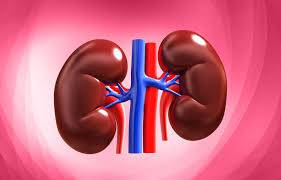Foods to Avoid When Suffering from Kidney Problems
Kidney problems can significantly impact your overall health, and dietary choices play a crucial role in managing these conditions. The kidneys are vital organs responsible for filtering waste, balancing fluids, and regulating electrolytes. When they aren’t functioning properly, certain foods can exacerbate the situation. Here’s a comprehensive guide on foods to avoid if you’re experiencing kidney issues.
1. High-Sodium Foods
Excess sodium can lead to increased blood pressure and fluid retention, both of which can strain the kidneys. Processed foods, such as canned soups, frozen meals, and snacks like chips, often contain high levels of sodium. Instead, opt for fresh foods and use herbs and spices for flavoring to help maintain a low-sodium diet.
2. High-Potassium Foods
For individuals with compromised kidney function, managing potassium intake is crucial. Elevated potassium levels can lead to serious heart problems. Foods high in potassium include bananas, oranges, potatoes, spinach, and avocados. If you’re on a potassium-restricted diet, consider discussing appropriate fruit and vegetable options with a healthcare provider.
3. Phosphorus-Rich Foods
Excess phosphorus can accumulate in the blood when kidney function declines, potentially leading to bone disease and cardiovascular issues. Foods that are typically high in phosphorus include dairy products, nuts, seeds, and certain types of whole grains. Processed foods often contain added phosphorus, so reading labels is essential. Choosing alternatives with lower phosphorus content can help manage your intake effectively.
4. Protein-Rich Foods
While protein is essential for health, excessive intake can burden the kidneys, especially in those with existing conditions. High-protein foods, such as red meat, poultry, and fish, can contribute to kidney strain. It may be beneficial to moderate your protein consumption and focus on high-quality sources, including plant-based proteins like beans and lentils, in consultation with a dietitian.
5. Sugary Foods and Drinks
Excess sugar can lead to weight gain, diabetes, and hypertension, all of which are detrimental to kidney health. Sugary beverages, candies, and desserts should be limited. Instead, choose natural sweeteners or fruit in moderation to satisfy your sweet tooth without compromising your health.
6. Foods High in Oxalates
Oxalates can contribute to kidney stone formation, which can be particularly problematic for those with kidney issues. Foods high in oxalates include spinach, beets, nuts, chocolate, and tea. If you are prone to kidney stones, it might be wise to limit these foods and stay well-hydrated to help prevent stone formation.
7. Unhealthy Fats
Trans fats and excessive saturated fats can contribute to cardiovascular problems and overall inflammation, which can complicate kidney issues. Foods like fried items, processed snacks, and certain baked goods often contain these unhealthy fats. Instead, incorporate healthy fats, such as those from olive oil, avocados, and fatty fish, which can support overall health.
8. Alcohol
Alcohol can have various effects on the kidneys, including dehydration and increased blood pressure. For individuals with kidney problems, it’s advisable to limit or avoid alcohol altogether. If you choose to drink, moderation is key, and it’s best to consult your healthcare provider about safe levels.
Conclusion
Managing kidney health requires a comprehensive approach, and diet plays a pivotal role. Avoiding high-sodium, high-potassium, phosphorus-rich foods, excessive protein, sugary items, oxalate-heavy foods, unhealthy fats, and alcohol can significantly alleviate the burden on your kidneys. Always consult with a healthcare professional or a registered dietitian before making significant dietary changes, as they can provide personalized advice based on your specific condition and needs. Adopting a kidney-friendly diet can improve your health outcomes and enhance your quality of life.


